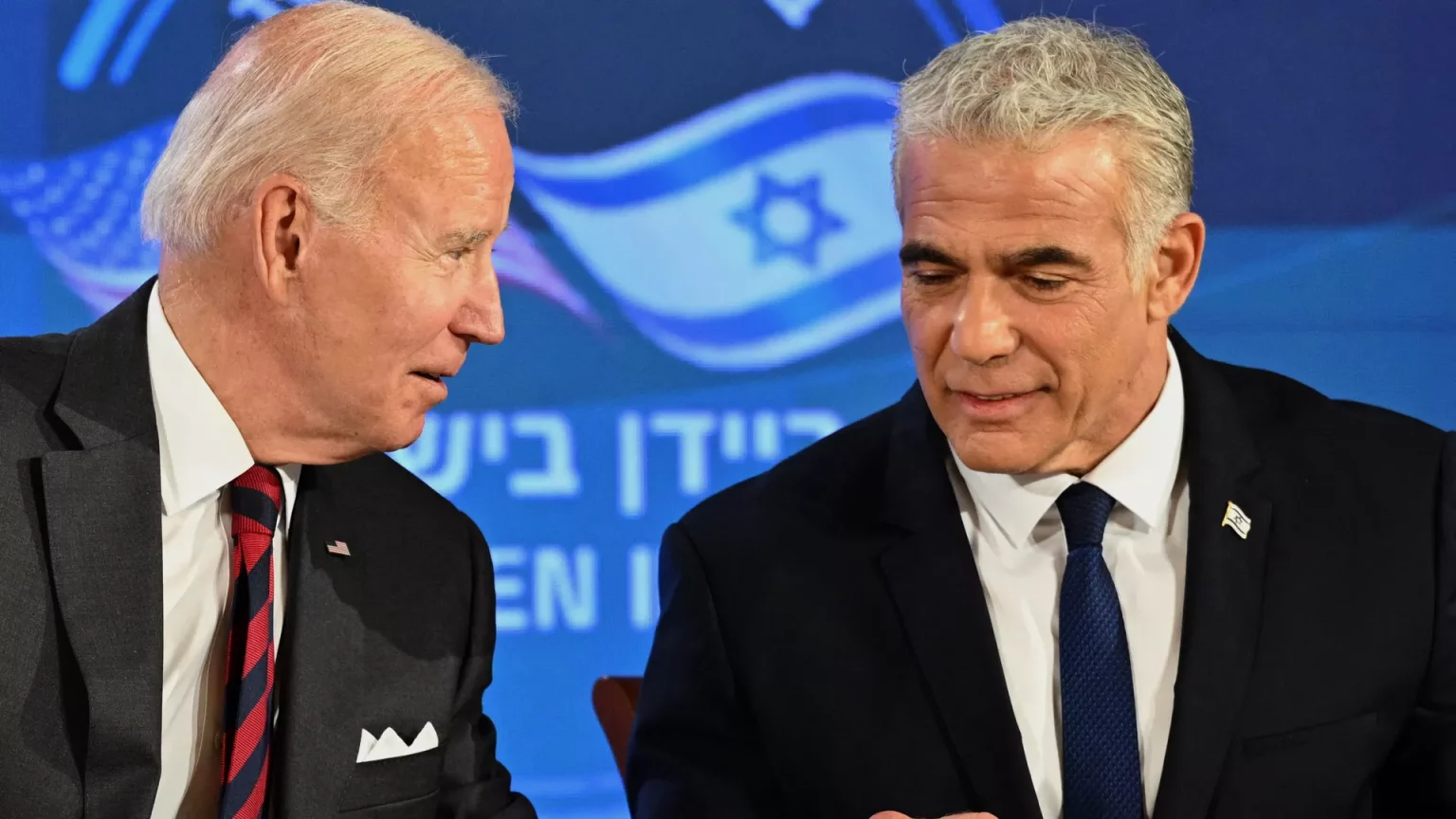The Biden administration in recent days has been seeking to reassure Israel that it hasn’t agreed to new concessions with Iran and a nuclear deal isn’t imminent, U.S. and Israeli officials told Axios.
Yes, but: Israeli officials said they‘re not reassured.
State of play: Iran gave a formal response this week to a “final” proposal from the EU, which has been mediating between the U.S. and Iran.
- That increased speculation that a deal could be close, and led to friction between the U.S. and Israel, which opposes a restoration of the 2015 nuclear deal.
- The Israeli concerns were exacerbated by the fact that the country is currently in an election campaign.
- If a nuclear deal is announced ahead of the November election, it could give political ammunition to opposition leader Benjamin Netanyahu to use against Prime Minister Yair Lapid.
Driving the news: Over the last week, White House officials assured their Israeli counterparts that despite claims in the press, there have been no new concessions to Iran, U.S. officials said.
- But last Thursday, senior Israeli officials briefed reporters that Lapid had told the White House that the EU draft goes beyond the 2015 deal and crosses the Biden administration’s own red lines.
Behind the scenes: The press reports surprised the White House, which on Thursday and Friday sought to reassure the Israelis once more that it wasn’t the Biden administration offering concessions but Iran, which dropped its demand the Revolutionary Guards be removed from a U.S. terror blacklist.
- “A deal might be closer than it was two weeks ago but the outcome remains uncertain as some gaps remain. In any case, it doesn’t seem to be imminent,” a U.S. official told Axios, describing the message that was given to the Israelis.
- Israeli officials confirmed there was intense dialogue with the U.S. in recent days, and that while most of the discussions remained behind closed doors and became more difficult, the press briefing was intended to make sure the White House understood how serious Israel’s concerns were.
- Israeli national security adviser Eyal Hulata will meet his White House counterpart Jake Sullivan in Washington next Tuesday and Israeli officials expect more tough discussions. “We are not reassured. We are very concerned,” one told Axios.
What they‘re saying: Israeli officials say that even though the discussions with the U.S. on Iran became tougher recently, Lapid has no intention of going on a public campaign against Biden around the nuclear deal with Iran.
- “Our policy is not to reach a public confrontation with the U.S. like the one that has taken place in 2015. We will not ruin the relationship with the Biden administration like Netanyahu did with Obama,” a senior Israeli official said.
- The White House National Security Council spokesperson Adrienne Watson said: “We are in intensive and constant discussions with Israel on Iran. National Security Adviser Hulata is coming next week to Washington. There is no greater supporter of Israel’s security than President Biden.”
Between the lines: Although the Israeli government’s official position is to oppose a U.S. return to the 2015 nuclear deal, several current and former senior defense and intelligence officials think differently.
- The current head of Israeli military intelligence, Gen. Aharon Haliva, told the security cabinet several times in recent months that a return to the 2015 nuclear deal will serve Israel’s interests.
- Defense Minister Benny Gantz also said in private that the current limbo with Iran is worse than a return to the deal.
- Former head of military intelligence, retired Gen. Tamir Hayman, wrote on Twitter Friday that the deal being discussed is bad, but still necessary in order to roll back Iran’s nuclear program and leave time to prepare a military option.
What to watch: The White House and the State Department are still reviewing and studying the Iranian response to the EU draft agreement. It is not clear when the U.S. will give its response in private and in public.
Source: Axios



